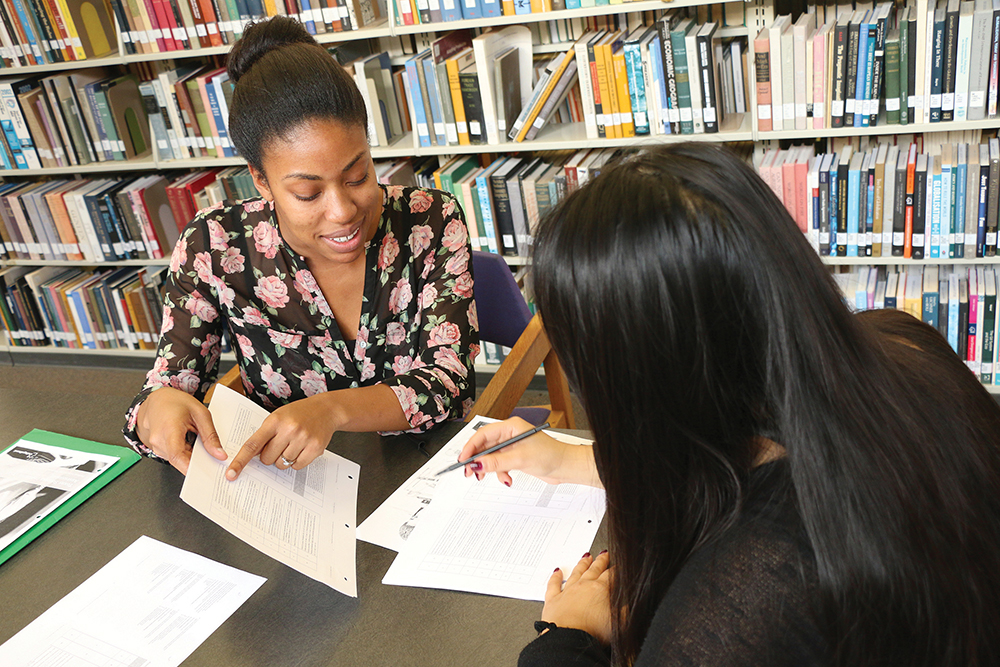College Bound
Research shows two important facts about high school students. First, disabled and at-risk students are less likely to pursue post-secondary education. Second, high school graduates without post-secondary education will earn less during their lifetime.
“That lifetime of poverty could become generations of poverty,” said Dr. Tamara Hodges, lecturer in the Department of Educational Psychology.
This information inspired Hodges and Dr. Terrill Saxon, professor and chair of Educational Psychology, to start the EnAbled for College mentoring program to motivate disabled and at-risk students to pursue post-secondary education. From 2010-12, the program sent mentors, who were School of Education graduate assistants, to spend one-on-one time with these students.
For these high-schoolers, regular guidance counseling is not enough. “Counselors can’t do it alone, and these kids need specific guidance,” Hodges said.
Phase two of the EnAbled program is now underway, running from 2014 until 2016, funded through a grant from AT&T. EnAbled is operating in China Spring, McGregor, Robinson and Brazos high schools. Mentors meet one-on-one with disabled, at-risk or low socioeconomic status students to explain college admissions, go over financial-aid forms, and help with the application process.
Educational Psychology graduate student Robin Wilson spearheaded the mentor program this fall.
“We also teach them things like how to communicate with a professor. We take those things for granted and forget that these kids are only 17,” she said.
During the 2014-15 school year, the EnAbled program had six mentors guiding 52 high school students. Of those 52 students, 45 went on to college. For the 2015-16 year, mentors have expanded to eight, and the number of high school students grew to 77 just during the fall.
EnAbled mentor Nicole Woodhouse (pictured, above) said she sees the positive effects. “I have one independent student, one student who is a ward of Child Protective Services, and numerous students whose families are not supportive of their desire to go to college or who are not in the picture at all,” she said. “Many of them told me that I, along with the school counselors, are the only people helping them stay out of the same ‘trap’ their families got caught in.”
The next step for the EnAbled for College II Program, Hodges believes, will be to reach out to the community and fundraise for scholarships specific to their students. She hopes local businesses would support first-generation college students who come through the program.
“A lot of these kids are working full time,” Hodges said. “Going to college will postpone money and food in their mouths. That whole mindset has been an obstacle. It’s an invisible handicap for some of these families, and we want to help them overcome this to help them and future generations.”
— by Kaleigh Lovvorn
